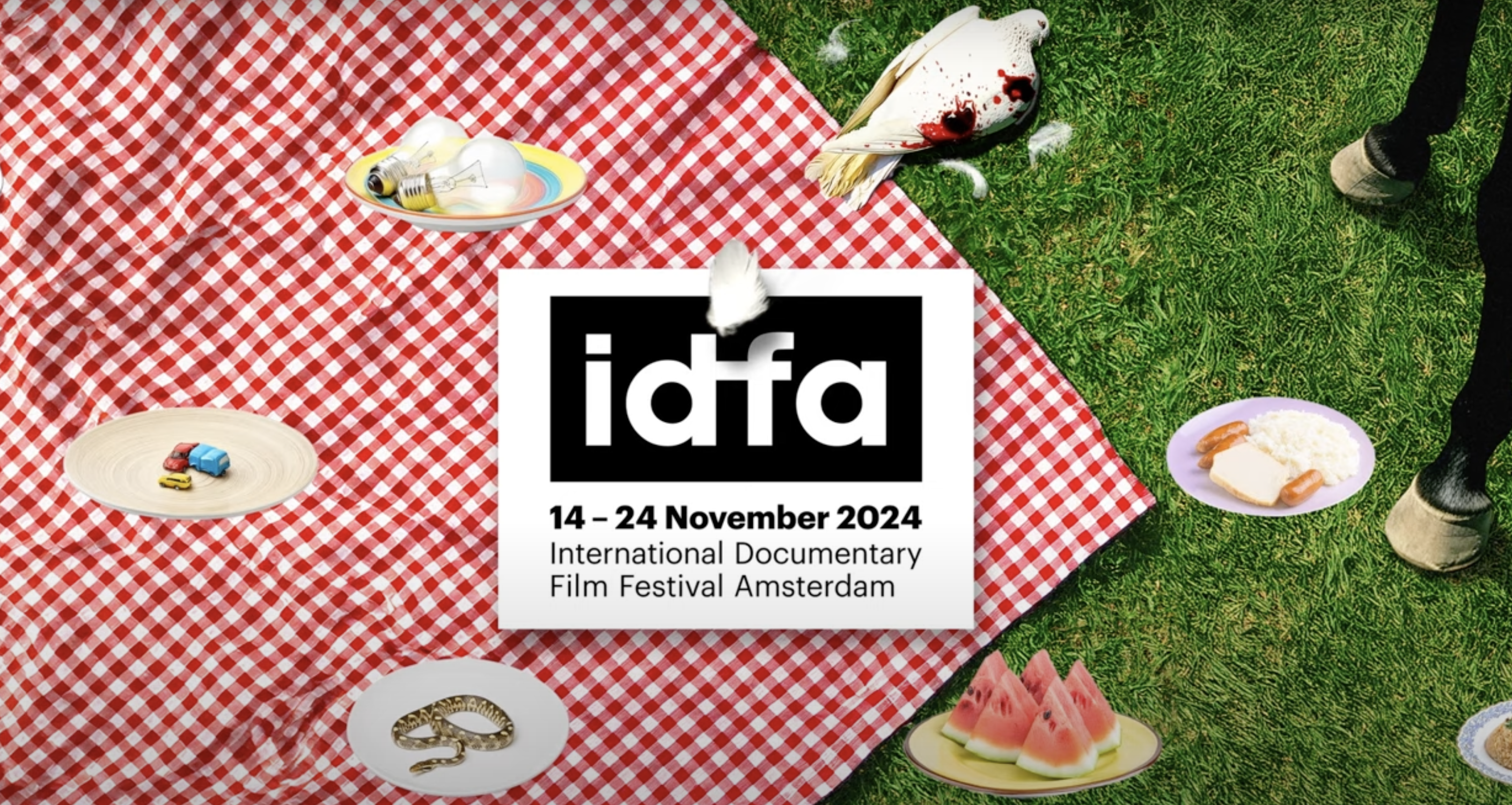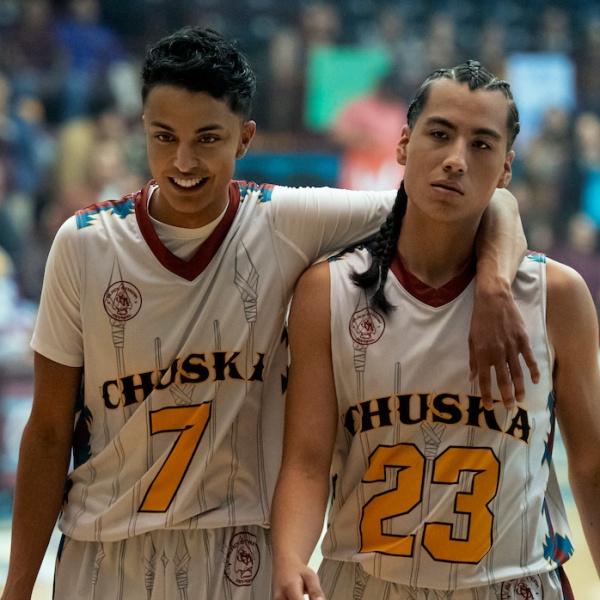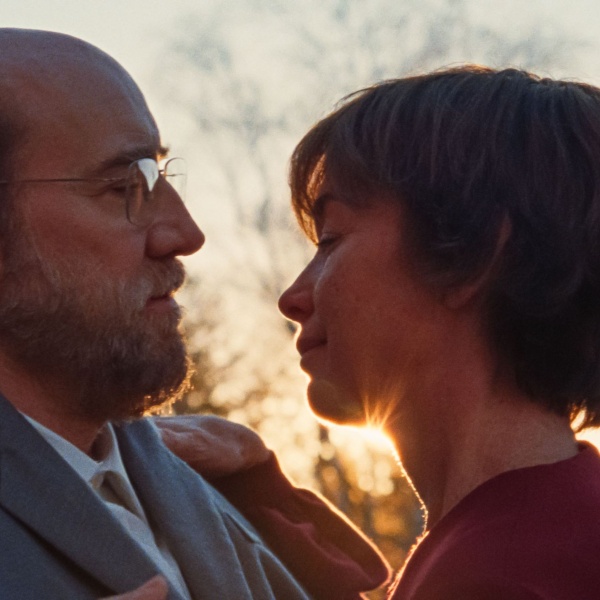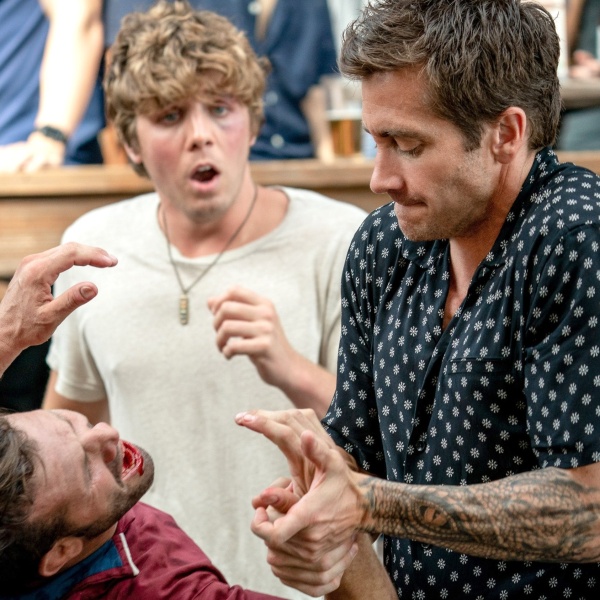Taking place just a month after Hamas’ October 7 attack on Israel, the International Documentary Film Festival Amsterdam (IDFA) went into crisis mode in 2023. Controversy erupted last year after pro-Palestinian activists burst onto the stage at the opening ceremony with a slogan — “From the River to the Sea, Palestine Will Be Free” — banned in some countries and also used by Hamas in its own messaging against Israel. The festival was forced to apologize for the disruption of what is meant to be a safe space for civic debate.
This year, its 37th edition self-reflected and recalibrated with a campaign and geopolitically curated programming that dealt in Israel-Palestine relations but also in protest and Western obliviousness.
The documentary festival gave films like vérité-style Oscar documentary contender “No Other Land,” a portrait of West Bank destruction of a Palestinian settlement by the Israeli military, a fall season European platform after it won the Berlinale Documentary Award in February. But IDFA programmed many other nonfiction titles, putting a spotlight on the conflict in the Middle East, including Frontlight entry “The 1957 Transcripts,” about a massacre of Palestinian villagers in the Israeli town of Kfar Qasim that year. Meanwhile, IDFA commissioned its festival trailer from Netherlands-born Raul Balai and exiled Iranian artist Ehsan Fardjadniya, two artists who were critical of IDFA and other cultural institutions last fall.
IndieWire spoke to IDFA artistic director Orwa Nyrabia — who is stepping down this year after running the fest’s programming since 2018 — about the intent before the trailer, which played before each of the films. The spot incorporates stock footage and artificial intelligence to directly comment on how such campaigns and institutional messaging deploy superficial signifiers of progress and diversity (think land acknowledgments that feel more tacked-on than actually conducive of change). Here, we see a picnicking Middle Eastern emigre couple ignorant (and therefore “complicit,” in the trailer’s words) to destruction booming around them. Per the festival, “Explosions in the distance shatter the calm as a voice-over introduces a harsh truth: many artists and other people with migrant backgrounds arrive in the West with a constructed image of a democratic, just, and open society. Instead, they face a more sobering reality.”
“While trying to examine our way of work after the turmoil of IDFA last year, we reached out and collaborated and discussed and had long meetings internally with our staff but also many of the artists and filmmakers who protested IDFA last year,” Nyrabia said. “We decided to lower our fences and that our response to those who were critical to us was to invite them for a chat, and have serious discussions.”
Through this process, he said, came Balai and Farjadniya. “They were really angry at us last year for the way we dealt with the protest of the opening night,” he said.
“They got to the bottom of the discussion last year that was really about Gaza and what’s happening in Israel and Palestine, but behind that was another discussion,” which Nyrabia said was about how what “many cultural organizations and film festivals do as inclusion is pretty hypocritical, and whenever things go bad, we all show it is hypocritical, just a facade to earn some points. [The artists] presented this critique in the form of this video that they call ‘Dear IDFA,’ so they did present it as a letter to us that clearly as you see says, ‘We come to the West promised many things, and we end up feeling that we are only forced to be complicit.’ That’s why [in a cut-down version played before screenings] it is only saying, ‘I cannot not be complicit. Can you?’ Because it also is self-critical.”
As IDFA is an ever-evolving cultural institution celebrated as the most important documentary film festival in Europe, Nyrabia said that’s also why he’s stepping down in a decision unrelated to last year’s turmoil.
“Last year was quite a challenge because of the political climate, but we also went through the pandemic like everybody else,” he said. “We had big changes in the organization. We changed a lot of the structure, so that it’s now a year-round institute,” adding more cinemas and multifunctional spaces to broaden IDFA’s footprint in Amsterdam.

“We’re doing a beautiful edition of the festival, so that’s a perfect time for me to change, to move on. And in a way, it’s safe for the organization, and it’s good for me. And I truly believe in change. I think it’s a big problem for cultural organizations when someone doing a job like mine stays too long. Maybe some shuffle is good for everyone,” Nyrabia said during an interview at the festival, where this year the team programmed more than 250 titles.
See the 2024 IDFA award winners here. The top prize winner in the competition was “Trains,” a Polish archival documentary that doubles as an emotional history of 20th-century Europe, taking place entirely within trains and locomotive cars. Nyrabia called director Maciej J. Drygas “one of the greatest filmmakers who work exclusively with archives, and his new film is looking at the history of the world, mostly Europe … through researching and knitting this history with images from trains.”
A number of films that played IDFA, including holdovers from other European festivals, take a more poetic and experiential approach to the talking-heads documentaries that dominate American theaters and television. There was “Gunda,” director Victor Kossakovsky’s globe-trotting journey through the uses of concrete; “Architecton” from A24; or Olha Zhurba’s audiovisual album of the war in Ukraine, “Songs of Slow Burning Earth,” or Sergei Loznitsa’s own portrait of Russia’s war on Ukraine, “The Invasion” — all three deprive viewers of the context normally overwhelming two-hour documentary films.
“It makes me happy because I think, to be honest, context has always been a very oppressive tool or request from bigger markets toward smaller market filmmakers,” he said. “In a way, nobody ever asked me if I knew what’s the difference between the ‘costumes’ of a Protestant or Catholic priest. I never had this context growing up. I learned it after watching a couple hundred of American or European films. Then I learned, I now know. I did not feel entitled to ask American filmmakers to give me context about the history of the U.S. in every film. I accepted that they invite me to fall into a moment in their history through this film, or in their lives. I accepted to go into it with an open heart.”
He added of the distinctions in context between American and European documentaries overall, “I don’t know everything. It’s mostly American and Western European buyers and distributors and executives who look at the rest of the world demanding explanations — ‘we don’t know you, so we don’t understand, why don’t you explain your entire history to us in every film?’ That’s very problematic. We need to watch more films, and that’s how to start to context.”
Starting today, a selection of IDFA films are available to watch online through December 31.





